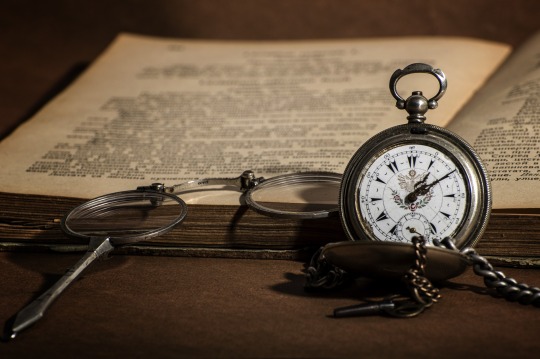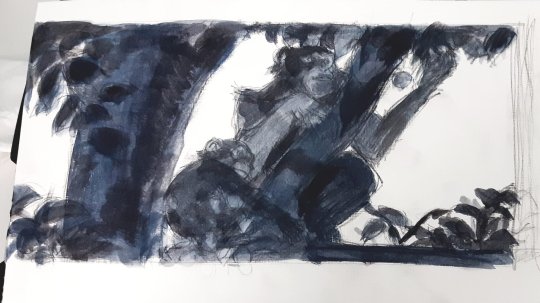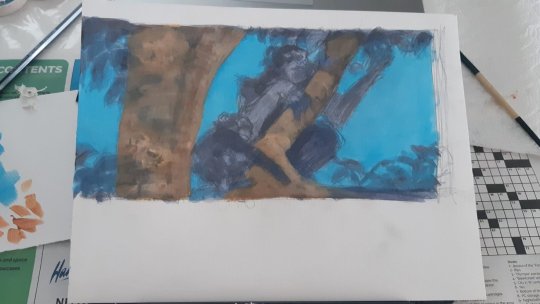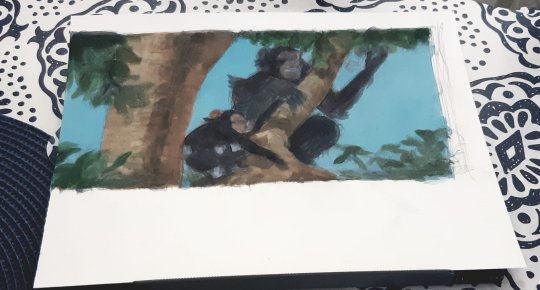#critique groups
Explore tagged Tumblr posts
Text
#writers#creative writing#writing#writing community#writers of tumblr#creative writers#writing inspiration#writeblr#writerblr#writing tips#writblr#writers corner#let's write#writing resources#writing advice#tips for writers#helping writers#critique groups#writers on tumblr#writers and poets#writer#writer stuff#writers life#writer problems#writer things#become a better writer#writing blog
20 notes
·
View notes
Text
Critique Groups: The Best of Times, The Worst of Times

I’m certain that virtually every published novelist has benefited from getting feedback from a critique group. And I’m sure every published novelist has had the experience of pulling out her hair and running down the street screaming after at least one critique group meeting. That’s the nature of the beast when it comes to critique groups: you probably can’t live with them, but you also can’t live without them.
No matter how experienced of a writer you are, it’s rough to hear what’s wrong with your novel, no matter how constructive the feedback. But the best way I’ve found to take constructive criticism is to think of it as a gift, something that will help me look at the big picture of my novel and will inspire me. The ideal is when this results in an epiphany of how to fix things so that the novel will be the best it can be. And a good critique group can help you do this.
However, finding a good critique group can be tricky. Every writer probably has her wish list for a dream critique group. Here’s mine:
~ An in-person group that meets at a time and place convenient for all members.
~ Members who are equal to me in writing skill or even better so I can learn from them.
~ All members working on novels (though memoirs can work too).
~ Every member willing to read 20-25 pages at a time (and even more in some cases).
~ Verbal feedback given during the meeting, and also written feedback to take home.
~ Emphasis on the “big picture” as opposed to line editing.
~ The bulk of the meeting spent on critiquing as opposed to socializing or group therapy.
~ Members who are committed to the group and also willing to discuss general writing and craft issues.
3 notes
·
View notes
Text
What I really mean when I submit my work to my critique group!
#writingcommunity#writing community#writers of tumblr#authors#bookblr#writer problems#writers life#authors community#female writers#writblr#critique groups#critiquing#critique groups for writers#help
0 notes
Text
For the second time in the last few years, I'm working with a critique partner who's very strict and picky about other people's work, but who gets defensive and sullen if anyone criticizes theirs. (We're nice, too: this person's critiques of others are way stronger than the ones they receive themself.) I feel like it must be a lack of self-awareness that causes this: they don't understand how they're coming across, and they're also not able to see the flaws in their own work. It's tiring to deal with.
0 notes
Text
Word x Word Historical #CritiqueGroup Invite
We’re looking to add to our group of critique partners. This is for writers of historical fiction, and its subgenres–fantasy, romance, mystery, suspense, supernatural, gothic. All eras and cultures welcome. (The industry definition of historical is 50 years ago.) LGBTQ+ welcome. Short stories, novellas, novel beta swaps, chapter by chapter, and brainstorming. Hopefully we’ll find enough writers…

View On WordPress
0 notes
Text
One thing I have seen - even from other trans people! - is this specific implication that while it's inevitable that trans men pass, but trans women are essentially doomed if they want to pass.
I could talk for days about the intricacies of passing for trans people in general. I could talk for hours about why some trans people want to pass, and that it shouldn't be forced. I could talk about the intricacies for trans men and others when it comes to passing because the dynamics don't play out the way it does for cis men a lot of times. But what gets me is the idea that trans women could never pass, that those who do are essentially anomalies is... nasty. It's got nasty implications, and it's feels even nastier when trans people do it.
Trans women, trans men, trans people of all types shouldn't be required, pressured, or forced to pass. That is true. But to say that passing is nigh impossible for an entire subsect of trans people will never not read as evil.
#trans#transgender#lgbt#lgbtq#mtf#nonbinary#transphobia tw#i keep seeing this from other trans people and it's horrifying#you know what you're implying right.#because there is a DIFFERENCE between 'it can be harder for some people to pass' and 'these trans people CAN'T pass'#it's harder for some people to pass! sometimes it's by choice and sometimes it isn't! acknowledging that is crucial#what isn't crucial is to take that and then go 'well none of you pass'#and this is always framed like... trans men and trans women are on diametrically opposed sides#and the argument then reads to me like: see the TRANS MAN gets to pass but you CAN'T. you LITERALLY can't. passing is IMPOSSIBLE for you#how is that anything BUT transphobia. and why is it normalized.#you can critique passing without doing this! you can analyze the dynamics of passing without doing this! i do it many times!#passing HAS impacted me in very nuanced ways and it's COMPLICATED. i of all people get that#i specifically talk about how gross it sounds for trans women because i think y'all are more OPENLY viciously hostile towards them#though that isn't to say that that vitriol is reserved only for one group of trans people
394 notes
·
View notes
Text
Sometimes I think about the rare times I would write OCs back in the 2001-2010 fandom days and the whole "Mary Sue callout" thing was so big so you had to make your OC just like... so boring and ordinary and the canon characters must find them unimportant and never ever let them be a love interest, and even then, people would probably still criticize you making an OC at all.
now I'm like YES my reader OC would catch the eye of this important character who would obsess over her and kill for her because he thinks she's the most sublime being in the world and he'll steal her away to keep her forever <3333
#I had a character get called out for being a mary sue when I was like#12#so I pivoted and joined a mary sue critique group#to take the heat off me and redirect my pre-teen shame.#in some ways I miss old fandom (oh I miss old KH fandom fic so much)#but in other ways NOPE. nope nope.#self-indulgent fics not making you an outcast is one thing I do love about modern fandom spheres
103 notes
·
View notes
Text
me looking at the discourse~~ in the 4mins tag right now:

#4 minutes the series#4 minutes#like y'all know you don't have to TAG salty opinions right#like shit can y'all tag it as anti xxx or xxx critique so myself and others can block#you're bringing down the house party#the cookout is for good vibrations#chaos pikachu speaks#i don't be tagging my opinions about monster next door offgun's 16 shows or kidnap i just keep it in the group chat#rip we've lost ourselves as a fandom#sidenote hate the idea that an individual not liking a thing equals bad writing
124 notes
·
View notes
Text
can i be honest. it's fucked that terfs got to claim the term gender critical. like their asses are NOT critiquing the hegemonic ways that the male and female genders are forced into rigid societal roles and no other genders are permitted to exist, they agree with all that shit. they think it's biologically innate. they're just mad when someone tries to break out of it
#not that i necessarily love the term gender critical because the group who best deserves to call themselves that are the people who#argue that just because gender is societal everyone should act like it doesn't exist at all and treat anyone who has a binary gender#like they're stupid or regressive or whatever. and weirdly enough they always bring this down on trans women more than anyone else#but like. at least that group is comprised of people with something to say. at least they actually critique the institution of gender
95 notes
·
View notes
Text

I have decided to stop meddling with this piece. It has to be done at some point, and here it is! I'm happy with how it turned out 😁 My last chimpanzee painting was two years ago, so it's time I make another one! Painted in acrylics and touched up with CSP. Shared some process shots too, just below :)



it was very messy.... and the lighting made a HUGE difference in the end!
#chimpanzee#acrylic painting#mixed media#shoutout to my friends in art group chats#your critiques saved me#THANK YOU!#the thing about painting chimpanzees is that youth and adults have such different skin tones#a mother-child piece is... interesting. They don't really blend together#youths have pale skin#while adult chimpanzees have this bluish-black-grey skin.#some still retain a bit of redness#but in a lot of the reference shots I used they look so BLUE when they are standing in strong sunlight#and this piece is in strong sunlight and right up against the blue sky#it was very challenging to put warm light on their cool coloured skin#hope it worked out...
81 notes
·
View notes
Text
#writing#writers#rejection letter#querying agents#literary agents#bad reviews#beta readers#critique groups#writing community#writers of tumblr#writing advice#writing resources#publishing advice#publishing resources#publishing tips#self publishing#am querying#learn from rejection#creative writing#creative writers#novlr#writeblr#writerblr#writing tips
8 notes
·
View notes
Text
Critique Groups: The Best of Times, The Worst of Times

I’m certain that virtually every published novelist has benefited from getting feedback from a critique group. And I’m sure every published novelist has had the experience of pulling out her hair and running down the street screaming after at least one critique group meeting. That’s the nature of the beast when it comes to critique groups: you probably can’t live with them, but you also can’t live without them.
No matter how experienced of a writer you are, it’s rough to hear what’s wrong with your novel, no matter how constructive the feedback. But the best way I’ve found to take constructive criticism is to think of it as a gift, something that will help me look at the big picture of my novel and will inspire me. The ideal is when this results in an epiphany of how to fix things so that the novel will be the best it can be. And a good critique group can help you do this.
However, finding a good critique group can be tricky. Every writer probably has her wish list for a dream critique group. Here’s mine:
~ An in-person group that meets at a time and place convenient for all members.
~ Members who are equal to me in writing skill or even better so I can learn from them.
~ All members working on novels (though memoirs can work too).
~ Every member willing to read 20-25 pages at a time (and even more in some cases).
~ Verbal feedback given during the meeting, and also written feedback to take home.
~ Emphasis on the “big picture” as opposed to line editing.
~ The bulk of the meeting spent on critiquing as opposed to socializing or group therapy.
~ Members who are committed to the group and also willing to discuss general writing and craft issues.
0 notes
Text
It can be humbling, but that's when the good writing begins.
#writingcommunity#writing community#writers of tumblr#authors#writers#authors on tumblr#kdsmiththewriter#tumblr writers#critique groups#critique#writers life#authors life
0 notes
Text
the thing about the daroga in the book that i don't think any adaptation (that i've seen, anyway) has really gotten right is that leroux sets us up from the introduction that he is really amazing and totally trustwothy

so while for most of the book the characters are all suspicious of him and say he has the evil eye and whatnot, the reader benefits from dramatic irony and knows any gut xenophobic instincts they may be experiencing are wrong, because the author himself already clued us in before the story started that this mysterious man is actually good and important
(which in term sets up the overarching message of the novel later hammered in with erik about not judging by appearances, accepting outsiders, valuing the contributions of people who would otherwise be ostracized by society lest they become the very monsters we make them out to be, etc. etc. etc...)
the adaptations... don't have that initial clue-in, so for the most part they end up feeding gut xenophobic instincts. the daroga wanders around and the characters and audience both wonder who he is and what he's up to. we are given no alternative viewpoint on him except the white characters' suspicious and often racist reactions
it's at its worst when the adaptations intentionally make him more stereotypical or "exotify" him by giving him eyeliner, a menacing character design, a forced silly/sinister accent, etc. the 1991 musical is probably the least egregious in this regard, but that's really only because he's set up in his first scene as comic relief and presented as a little too incompetent to be a threat
and sure, in the end of all these adaptations we learn the truth and get the same point across--he is a perfectly trustworthy guy and, like erik, we should not be afraid of him just because he is different--but i REALLY think we miss something and detriment his character by not getting clued in on at least some of his deal from the start
honestly, if we were ever to get that perfect adaptation where he is included and portrayed as actually important, i think the only way you could really avoid this would be to:
present the story as a frame narrative, the way the book did
deviate from the book a bit and give him slightly more to do at the start, have us actually see him doing helpful things outside of all the white characters' sphere of knowledge so we have another perspective to draw upon. it doesn't need to reveal everything about him yet (we still want suspense, after all), but should still make it clear that he is not a bad guy, just misunderstood by the people around him
#screaming into the void#poto#the daroga#nadir khan#i'm not going to act like the portrayal of the daroga is flawless as a critique of xenophobia and orientalism. it's not#the daroga is an indistinct hodgepodge of “oriental” traits that fail to distinguish between different cultures and groups#but i do respect leroux for making the attempt even if he didn't always get it right#anyway gotta go seeing a movie now cheerio
50 notes
·
View notes
Text
seeing non-black people critique rick's portrayal of black characters is interesting sometimes. only like 30% of the critiques I see make any sense to me to be honest
#“rick made carter be an elvis presley fan that's fucked up!” is a real thing I just read#do you think black people can't enjoy elvis even though he appropriated black culture for personal gain#boy you would not like what I have to tell you about eminem. or kpop. or anything else bc black culture has been#appropriated by like everyone forever. are black people not allowed to enjoy iggy or ariana or billie or [the list goes on]#I myself am not biracial but I /mostly/ like carter and sadie (specifically carter who isn't white-passing) as black representation#the part where carter feels indignant that he has to hold himself to a higher standard because the world is harsher on black boys#did genuinely resonate with me when I first read that part as a child and it still does to this day#can we talk about how rick knows nothing about black hair instead#or how hazel is from the jim crow era and seems to not have one single thought about race in the modern era#or hazel's horror over the amazons keeping slaves but “no they're not slaves they just like it that way 🥰”#my problems with hazel are not at all about stereotypes I just don't buy her as an authentic portrayal of a black girl from the 1930s#don't get me started on beckendorf. does every black character need to die a violent horrible death rick#anyways this isn't intended to make anyone feel bad but we need more meaningful nuance in critiques beyond “hey that's a stereotype! bad!”#if you can't discern and communicate WHY it's bad then you're not saying anything of substance#is it a caricature? is it uninformed/underresearched? are all the characters from that group being represented in that way?#is the stereotype itself a degradation of that group? is it being played for laughs? is the character a one-dimensional stereotype?#what can we glean about the biases of the author/narrative and their worldview through their portrayal of certain groups in the text?#a big part of literary analysis and critique is not only pointing out The Thing. you need to also say something about The Thing#like if you have a black character say they like hiphop then sure it's a “stereotype”. but lots of black people do like hiphop#it's an important part of black american culture and portraying that in media isn't racist by default#and in fact lots of poc keep parts of themselves quiet for fear of being perceived as a “stereotype” when we shouldn't have to do that#BUT if you're doing it like jonah wizard was written in the 39 clues then that's where we've got a problem bc wtf was that rick#that was so racist oh my god I was like 11 years old reading that 😭 and then he had the white mc poke fun at him for being a gangster#and him being a “gangsta” was always played for laughs throughout the story#not being pro-rick here as I'm a big fan of critical riordan reading just being pro-thoughtful critiques because some of you guys actually#sound a wee bit ignorant when saying things like what was mentioned in the first tag#baye.txt#pjo hoo toa#rr crit#<- tagging that just for. well the tags basically
20 notes
·
View notes
Text
man some of y'all have never learned the home training of "keep your hate/critique out the main tags and on your own blog or in critical tags" and then wonder why ppl be vagueblogging or reblogging with disagreements like you didn't show up to the crochet lovers group telling everybody how crocheting was actually Not Fun At All and really hard and doesn't make sense to enjoy, or Problematic, actually instead of keeping it in the group chat with the haterella besties
#we are the series#love sea the series#playboyy the series#and i know ppl are gonna be like “so what we can't critique things now? we should be able to critique media”#baby i didn't say you couldn't like waffles i just said i like pancakes that's a whole new sentence#i'm just saying y'all can't post about how much you Dislike A Thing and then get salty when ppl are like “hey what the fuck bro”#when you come into their house and tell them their decor sucks#like maybe their decor does suck but you're still in their house bro!#just say their decor sucks in your house with the friend group and then ppl won't be like “hey what the fuck bro”#b/c it's your house you can say whatever you want#chaos pikachu speaks#do y'all know how many shows and actors that are hella popular i think are mid af?#do i post that shit in the tags? no i don't and if I did#and the fans were like why are you such a bitch I'd be like fair cause I came into y'alls house
108 notes
·
View notes